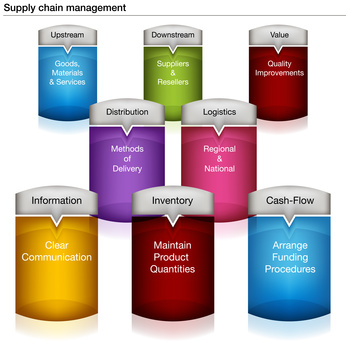 To save money and to improve your company's business it's important to find the best business system software to operate all the different and expanding operations. With a company that isn't used to the various and often complicated application landscapes, they can become quickly mired in a complex web of operations that no one knows how to control.
To save money and to improve your company's business it's important to find the best business system software to operate all the different and expanding operations. With a company that isn't used to the various and often complicated application landscapes, they can become quickly mired in a complex web of operations that no one knows how to control.
You can, for example have one standalone business management system and another one for assessing risk perhaps, or another for ordering and another for checking stock. With all this disparate software system going on and different spread sheets and databases, it's no wonder that a company can be at its wits end.
The whole system can be ground to a halt over time to what's known as a "software hairball" and inhibit a company to operate at its best. With productivity coming to a standstill, this can have a detrimental impact on a company's ability to make money and that has serious implications.
What kind of problems can you run into?
Firstly, your employee's time is wasted. More mistakes are likely and they are spending less time on more important tasks while trying to jump from one system to another.
For example one employee is inputting orders for a new product on one piece of software, while another employee is using another system to check the stock of this particular product and stocks are running low, it turns out the product is going to take several weeks to re order.
In the meantime the first employee has taken several orders for a product that won't be available. If this is goes ahead there's going to be irate customers and cancelled orders, this is not going to help.
As we have seen there is no real way of seeing what exactly is going on all the time, and this can cause problems. If you're using different systems there is no real way of seeing what's going on in real time, important information can be missed, mistakes can be made and this can be costly.
Thirdly new versions of individual software systems can be expensive over time, instead of updating one system, you're updating several, and sometimes more maintenance needs to be performed as one update on one particular system can have a detrimental impact on another.
Your customers are important too, get it right and they come back. Word of mouth spreads and when you're providing an excellent service word spreads fast. Make mistakes and take too long providing something to the customer and that can spread like wildfire too.
If customers can't get timely feedback on their orders, if they have to wait too long for products then they're simply going to go elsewhere, poor customer service doesn't buy loyalty I'm afraid. Timeliness and accuracy do.
What are the advantages of having integrated systems?
In order to run your business efficiently, ideally, you need all your software applications integrated so that they work for you not against you. You're going to reap the rewards of increased business productivity and cost savings.
Research has revealed that companies that integrate their business systems in this way increase their performance tenfold, with increased sales and a far better ability to make decisions based on more accurate information.
How?
All systems should connect relatively easy, or so you would think. Although each system may seem autonomous; it's far harder than it first appears. How can system be made to talk to each other, may be nigh on impossible.
The way forward is an integrated business software suite which can transform the business. There are many available on the market and it will be worthwhile getting a professional to install, in the long run you'll save money.



.png?width=120&height=120&name=MicrosoftTeams-image%20(4).png)


